|
|
|
|
|
|
|
|
The Center for Strategic and International Studies will host a conversation with Admiral Paul F. Zukunft, Commandant of the US Coast Guard on the Coast Guard's activities and engagement in the Arctic. Admiral Zukunft will discuss the work of the Arctic Coast Guard Forum, the status of the US icebreaker procurement, implementation of the Coast Guard's Arctic strategy, and the service's overall readiness to meet the challenges of the emerging new ocean.
** New this week ** ARCUS Arctic Research Seminar with Robert Corell, May 3, 2017. (Washington, DC and webinar). The Arctic Research Consortium of the US (ARCUS) is pleased to announce that the next Arctic Research seminar will feature Robert Corell. Presentation Abstract: Why are changes in the Earth's Climate System in and across the Arctic important to the peoples of the Arctic and for the rest of the world? Warming in the Arctic is occurring at twice the rate elsewhere in the world. This is driving sweeping changes that will impact communities in the Arctic and all over the world. Scientists have documented that the sea ice has lost 80% of its mass, the permafrost is thawing as rates unseen for 100s of thousands of years. The glaciers of Greenland are adding to sea level rise at unprecedented rates.
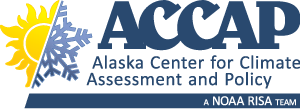 15th annual Climate Prediction Applications Science Workshop (CPASW), May 2-4, 2017 (Anchorage, Alaska USA). The 15th annual Climate Prediction Applications Science Workshop (CPASW), hosted by the U.S. National Weather Service and the Alaska Center for Climate Assessment and Policy, will bring together climate researchers, information producers, and users to share developments in the research and applications of climate predictions for societal decision-making. The theme for this year's workshop is Understanding Extreme Events and Decision-Maker Needs in the Context of Climate Variability and Change. Registration for this workshop will be open on March 1. For more information about the workshop: here. 15th annual Climate Prediction Applications Science Workshop (CPASW), May 2-4, 2017 (Anchorage, Alaska USA). The 15th annual Climate Prediction Applications Science Workshop (CPASW), hosted by the U.S. National Weather Service and the Alaska Center for Climate Assessment and Policy, will bring together climate researchers, information producers, and users to share developments in the research and applications of climate predictions for societal decision-making. The theme for this year's workshop is Understanding Extreme Events and Decision-Maker Needs in the Context of Climate Variability and Change. Registration for this workshop will be open on March 1. For more information about the workshop: here.
|
As Arctic Ice Vanishes, New Shipping Routes Open. As global warming melts sea ice across the Arctic, shipping routes once thought impossible - including directly over the North Pole - may open up by midcentury. But high costs may keep the new routes from being used right away. The amount of sea ice covering the Arctic Ocean has declined sharply each decade since the 1980s, according to measurements taken each September when the ice is at its minimum. Older, thicker ice is disappearing as well. Scientists say global warming is largely responsible for the changes. Parts of the Arctic are warming twice as fast as elsewhere. New York Times
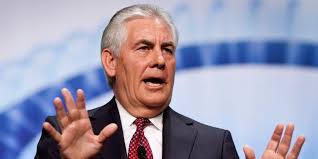 Secretary of State Tillerson to Travel to Fairbanks. Secretary of State Tillerson to Travel to Fairbanks. U.S. Secretary of State Rex Tillerson will travel to Fairbanks, Alaska, May 10-11 to attend the 10th Arctic Council Ministerial Meeting. At the Ministerial Meeting, representatives from the eight Arctic States will discuss issues of mutual interest and review the accomplishments of the U.S. Arctic Council Chairmanship. Additionally, Secretary Tillerson will officially pass the two-year rotating chairmanship of the Arctic Council to Finland. On the margins of the meeting, Secretary Tillerson will host a celebration of the 20th Anniversary of the Arctic Council, hold bilateral meetings with his counterparts, and meet with U.S. indigenous representatives to the Arctic Council. The Arctic Council is an intergovernmental forum promoting cooperation, coordination, and interaction among the Arctic States, the region's indigenous communities, and other Arctic stakeholders. Arctic Journal
Walrus Appearing in NL Not Uncommon, Says DFO. The Department of Fisheries and Oceans says while walrus are an Arctic species, there are sightings in and around Newfoundland from time to time. Research scientist in DFO's marine mammal section, Dr. Garry Stenson says the walrus that recently made a splash in St. Lunaire-Griquet appears to be a young animal. He says while walrus are normally found much further north, they do make it down to the island, with one or two sightings reported every year. VOCM
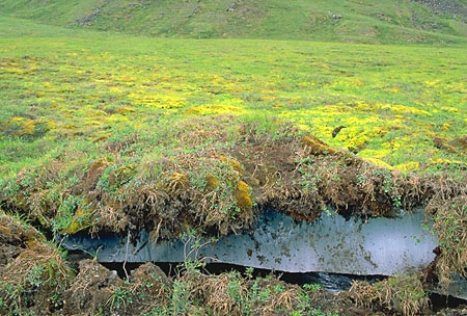 Climate Adaptation, Education Key to Canada's Strategy in the Arctic: Mary Simon. Healthy, educated people and an eye on climate change are key for sustainable development in the North, according to a new report from the Minister for Indigenous and Northern Affairs' special representative on Arctic Leadership. Mary Simon's report, A New Shared Arctic Leadership Model, makes more than 40 recommendations, touching on education, infrastructure and environmental protection in Canada's Arctic, among other topics Climate Adaptation, Education Key to Canada's Strategy in the Arctic: Mary Simon. Healthy, educated people and an eye on climate change are key for sustainable development in the North, according to a new report from the Minister for Indigenous and Northern Affairs' special representative on Arctic Leadership. Mary Simon's report, A New Shared Arctic Leadership Model, makes more than 40 recommendations, touching on education, infrastructure and environmental protection in Canada's Arctic, among other topics. CBC News
Arctic's Summer Sea Ice Could be Gone in 20 Years. Say goodbye to dreams of standing at the top of the world, for you may soon have to swim. A report published last week by the Arctic Monitoring and Assessment Programme suggests that the Arctic may be ice-free in summer within twenty years. The 90 authors of the rigorously peer-reviewed AMAP report state, "Extrapolations of recent observed data suggest a largely ice-free summer ocean by the late 2030s, which is earlier than projected by most climate models." This timeframe is also much sooner than AMAP reports from the early 2000s predicted. An executive summary published in 2004, just 13 years ago, projected near total loss of summer sea ice by the end of this century. Maritime Executive
|
|
Future Events
Week of the Arctic, May 7-12, 2017 (Fairbanks and Anchorage, Alaska USA). The Arctic Council Ministerial Meeting in Fairbanks, May 2017, provides an amazing opportunity to showcase the city and state. The Ministerial in Fairbanks will highlight science and policy in important ways, at the same time the 20th Anniversary of the Arctic Council is celebrated. Following the Ministerial Meeting, the Arctic Council Host Committee will also host events in Anchorage. This week will include the International Arctic Assembly on May 9th. The International Arctic Assembly will demonstrate an innovative approach to multi-disciplinary, cross-sectorial dialogue that will feature local, national and international speakers from business, policy and research. Plenary panel discussions will focus on Arctic policy, Alaska's unique role in informing and influencing state, national and international policy, scientific research, indigenous leadership and culture, and social-economic development. See the program for the full week here.
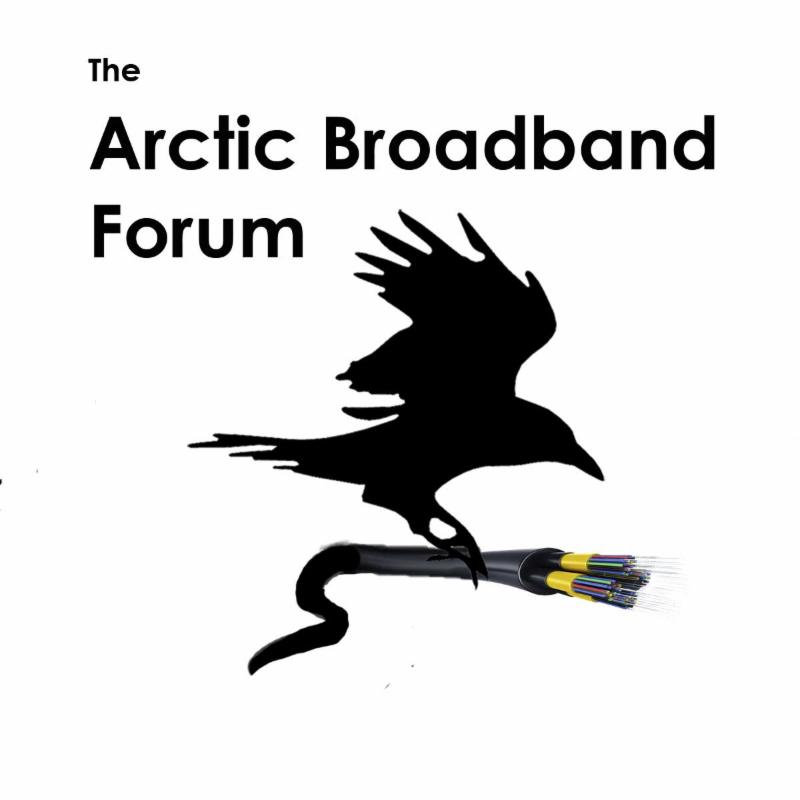 The Arctic Broadband Forum 2017, May 8-9, 2017 (Fairbanks, AK USA). The Arctic Broadband Forum will unite educators, researchers and industry from across the World to discuss the challenges, successes and potential of telecommunications and broadband deployment in the Arctic for economics, healthcare and education. Specific emphasis will be placed on the role of broadband and digital technologies on the cultural preservation and self-determination of indigenous populations throughout the Arctic. The Arctic Broadband Forum 2017, May 8-9, 2017 (Fairbanks, AK USA). The Arctic Broadband Forum will unite educators, researchers and industry from across the World to discuss the challenges, successes and potential of telecommunications and broadband deployment in the Arctic for economics, healthcare and education. Specific emphasis will be placed on the role of broadband and digital technologies on the cultural preservation and self-determination of indigenous populations throughout the Arctic.
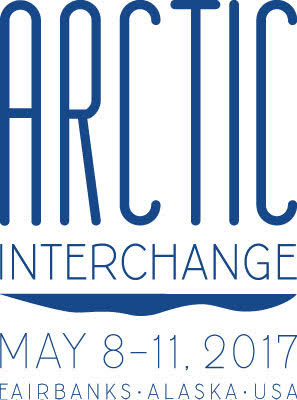 Arctic Interchange, May 8-11, 2017 (Fairbanks, Alaska USA). Arctic Interchange, May 8-11, 2017 (Fairbanks, Alaska USA). On the sidelines of the Arctic Council's Fairbanks Ministerial, which occurs May 11, 2017, the Week of the Arctic is an exciting time to explore accomplishments made during the U.S. Chairmanship, current and emerging Arctic trends, and the intersection of policy, research and business. The Alaska Arctic Council Host Committee, working in close cooperation with the University of Alaska Fairbanks and community partners, has organized a robust program full of opportunities for participants and interested Arctic stakeholders to learn, share, network and collaborate. We hope to see you at these presentations, workshops, receptions and facilitated policy discussions as we transition from the U.S. to Finnish Chairmanship of the Arctic Council.
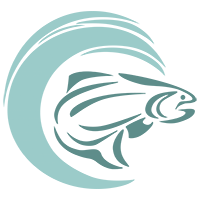 Impacts of a Changing Environment on the Dynamics of High-Latitude Fish and Fisheries, May 9-12, 2017 (Anchorage, Alaska USA). This symposium examines the impacts of the environment, especially climate change and variability, on the dynamics of arctic and sub-Arctic species of commercial, subsistence, and ecological importance. The symposium will focus on the effects of warming, loss of sea ice, ocean acidification, and oceanographic variability on the distribution, phenology, life history, population dynamics, and interactions of these species and how a better understanding of these effects can inform the assessment and management of fish and invertebrate populations in a changing ocean for the benefit of affected communities. Impacts of a Changing Environment on the Dynamics of High-Latitude Fish and Fisheries, May 9-12, 2017 (Anchorage, Alaska USA). This symposium examines the impacts of the environment, especially climate change and variability, on the dynamics of arctic and sub-Arctic species of commercial, subsistence, and ecological importance. The symposium will focus on the effects of warming, loss of sea ice, ocean acidification, and oceanographic variability on the distribution, phenology, life history, population dynamics, and interactions of these species and how a better understanding of these effects can inform the assessment and management of fish and invertebrate populations in a changing ocean for the benefit of affected communities.
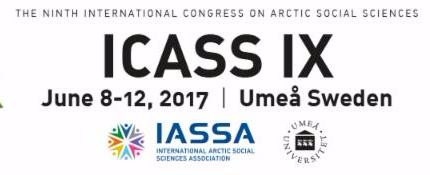 Ninth International Congress of Arctic Social Sciences: People and Places (ICASS IX), June 8-12, 2017 (Umea, Sweden). ICASS IX's theme is People & Place. Research on social sciences and humanities have a great responsibility to address the challenges for sustainable development in the Arctic, with a specific focus on the many different parts of the Arctic and the people that live there. The multiple Arctics have lately been addressed by many policy makers and researchers. The purpose is often to counteract the stereotypic understanding of the Arctic too often represented by icebergs and polar bears. A focus on people and place highlights the many variances across the region in terms of climate, political systems, demography, infrastructure, history, languages, legal systems, land and water resources etc. Ninth International Congress of Arctic Social Sciences: People and Places (ICASS IX), June 8-12, 2017 (Umea, Sweden). ICASS IX's theme is People & Place. Research on social sciences and humanities have a great responsibility to address the challenges for sustainable development in the Arctic, with a specific focus on the many different parts of the Arctic and the people that live there. The multiple Arctics have lately been addressed by many policy makers and researchers. The purpose is often to counteract the stereotypic understanding of the Arctic too often represented by icebergs and polar bears. A focus on people and place highlights the many variances across the region in terms of climate, political systems, demography, infrastructure, history, languages, legal systems, land and water resources etc.
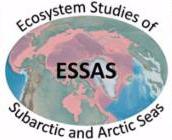 2017 ESSAS Open Science Meeting on Subarctic and Arctic Science, June 11-15, 2017 (Tromsø, Norway). 2017 ESSAS Open Science Meeting on Subarctic and Arctic Science, June 11-15, 2017 (Tromsø, Norway). This 3rd Open Science Meeting (OSM) is intended to attract an interdisciplinary group of scholars who will be prepared to discuss their research in the Subarctic, in both the North Atlantic and the North Pacific, and the Arctic Ocean. The title of the OSM is Moving in, out and across the Subarctic and Arctic marine ecosystems: shifting boundaries of water, ice, flora, fauna, people and institutions. It will document the changes that have occurred, the processes that led to these changes, and how future changes are likely to further affect these marine ecosystems. It will also to consider the people who depend upon these ecosystems and how they may be able to cope with the changes in the ecosystem goods and services that they derive from these ecosystems. These include the availability of subsistence foods and the opportunity for commercial fishing. Economic and societal pressures on coastal communities and nations will be sought in relation with the ecosystem changes. To put the present day in a longer perspective, the conference will include a session on the paleoecology of people in Subarctic and Arctic regions that were forced to adjust to the changing temperature and sea-ice conditions in the past.
** New this week ** The Wilson Center-Arctic Circle Forum: The United States and Russia in the Arctic, June 21-22, 2017 (Washington, DC USA). In light of recent world media attention towards Russia and the United States, the Arctic Circle and the Wilson Center will host a Forum on the two countries' complicated yet inherently linked role and relationship in the Arctic. The future of the Arctic will be greatly influenced by the actions of the United States and Russia. What are their policies, their plans and their relations with other states in the Arctic and the Asian and European countries seeking an increasing role in the Arctic? High-level representatives, policymakers and experts will gather in the Ronald Reagan Building in Washington, DC, June 21, to address these questions and challenges. This event is co-hosted by Wilson Center and Arctic.
The 2nd Asian Conference on Permafrost, July 2-6, 2017 (Sapporo, Japan). Delegates will participate in state-of-the-art oral and poster presentations in the modern city of Sapporo (host of the 1972 Winter Olympics). Field trips will visit marginal and extrazonal mountain permafrost sites that support unique geo-eco-hydrological features. All aspects of frozen ground research will be covered, from needle ice to deep permafrost, from frozen ground engineering in cities to permafrost on volcanoes, and from links between frozen ground and ancient cultures to present-day outreach. Plan now to enjoy science and engineering, excellent food, and unique field trips in Sapporo.
Co-hosted by U.S. National/Naval Ice Center (NIC) and the U.S. Arctic Research Commission (USARC). A biennial symposium originating in 2001 that focuses on U. S. naval operations and national strategic issues in an "ice-free Arctic." This symposium brings together nationally and internationally recognized experts on Arctic observations, climate change, and maritime operations.
As the Symposium is organized jointly by two leading Research Institutes of Russian Academy of Science - Institute of Water Problems and Melnikov Permafrost Institute, particularly the contributions on following research topics are welcome:
- Observational evidences of change in coupled permafrost-hydrology system.
- Present state and future projections of local, regional and pan-Arctic hydrology.
- Modeling studies representing landscape evolution, dynamics of water storages and permafrost degradation.
- Impacts of permafrost hydrology changes on local communities.
VII International Conference on Cryopedology, August 21-25, 2017 (Yaktsk, Russia). The conference will be hosted by the Institute for Biological Problems of the Cryolithozone of the Siberian Branch of the Russian Academy of Sciences (SB RAS). Plenary reports will be organized in the hall of the Academy of Sciences of the Sakha (Yakutia) Republic. The official languages of the conference are English and Russian (with translation). All technical facilities (projectors, computers, video sets) will be available during the conference for presentation of papers. Additional information will be available soon. See the Facebook page here.
 2017 University of the Arctic Rectors' Forum and Conference, August 27-29, 2017 (Aberdeen, Scotland). This conference will also consider how northern scholarship can add to discussions on the North into broader terrains of intellectual engagement. In so doing, it will challenge dominant paradigms of research in both the natural and the social sciences, above all by calling into question the very separation of the world of nature from that of human society which underwrites the distinction between these two branches of scientific inquiry. In its place the conference will seek to forge a new practice of interdisciplinary research, done in collaboration with northern residents and on their terms, which recognizes that every discipline is itself an ongoing conversation, or a way of knowing, rather than a compartment within an overarching, hierarchically organized system of knowledge. Conversations from the North will, then, help to generate a science that is more open-ended, responsive to environmental variation and respectful of the wisdom of inhabitants. 2017 University of the Arctic Rectors' Forum and Conference, August 27-29, 2017 (Aberdeen, Scotland). This conference will also consider how northern scholarship can add to discussions on the North into broader terrains of intellectual engagement. In so doing, it will challenge dominant paradigms of research in both the natural and the social sciences, above all by calling into question the very separation of the world of nature from that of human society which underwrites the distinction between these two branches of scientific inquiry. In its place the conference will seek to forge a new practice of interdisciplinary research, done in collaboration with northern residents and on their terms, which recognizes that every discipline is itself an ongoing conversation, or a way of knowing, rather than a compartment within an overarching, hierarchically organized system of knowledge. Conversations from the North will, then, help to generate a science that is more open-ended, responsive to environmental variation and respectful of the wisdom of inhabitants.
- Small and off-grid community energy solutions
- Oil and gas development
- Renewable energy
- Regulation and Financing
- Transportation and transmission
The AES is a multi-disciplinary event expected to draw several hundred industry officials, scientists, academics, policy makers, energy professionals and community leaders together to collaborate and share leading approaches on Arctic energy issues.
2017 Arctic Circle Assembly, October 13-15, 2017 (Reykjavik, Iceland). The annual Arctic Circle Assembly is the largest annual international gathering on the Arctic, attended by more than 2000 participants from 50 countries. The Assembly is held every October at the Harpa Conference Center and Concert Hall and is attended by heads of states and governments, ministers, members of parliaments, officials, experts, scientists, entrepreneurs, business leaders, indigenous representatives, environmentalists, students, activists and others from the growing international community of partners and participants interested in the future of the Arctic.
 Polar Law Symposium 2017 and Rovaniemi Arctic Spirit, November 13-16, 2017 (Rovaniemi, Finland). The purpose of the Polar Law Symposium is to examine, in detail, the implications of the challenges faced by the Polar Regions for international law and policy and to make recommendations on appropriate actions by states, policy makers and other international actors to respond to these emerging and re-emerging challenges. The Rovaniemi Arctic Spirit Conference is integrated with the Polar Law Symposium, which will be organized by the Northern Institute for Environmental and Minority Law at the Arctic Center of the University of Lapland. Polar Law Symposium 2017 and Rovaniemi Arctic Spirit, November 13-16, 2017 (Rovaniemi, Finland). The purpose of the Polar Law Symposium is to examine, in detail, the implications of the challenges faced by the Polar Regions for international law and policy and to make recommendations on appropriate actions by states, policy makers and other international actors to respond to these emerging and re-emerging challenges. The Rovaniemi Arctic Spirit Conference is integrated with the Polar Law Symposium, which will be organized by the Northern Institute for Environmental and Minority Law at the Arctic Center of the University of Lapland.
ISAR-5 Fifth International Symposium on Arctic Research, January 15-18, 2017 (Tokyo, Japan). The fifth ISAR has been planned at the recommendation of the science steering committee of ISAR-4, which was held in Toyama, Japan in April 2015. The fifth ISAR will be devoted to discussions on environmental changes in the Arctic and their regional and global implications, to seek additional international scientific collaboration in this area by gathering, synthesizing and sharing information related to these changes occurring in the Arctic. Special emphasis will be placed on the fields of the social sciences and humanities, which were not included in the previous ISARs. ISAR-5 will consist of general sessions and special sessions. The general sessions will address the following topics: atmosphere; ocean and sea ice; rivers, lakes, permafrost, and snow cover; ice sheets, glaciers, and ice cores; terrestrial ecosystems; marine ecosystems; geospace; policies and economy; and social and cultural dimensions. Special sessions will be solicited on cross-cutting themes.
 POLAR 2018, June 15-27, 2018 (Davos, Switzerland). POLAR2018 is a joint event from the Scientific Committee on Antarctic Research (SCAR) and the International Arctic Science Committee (IASC). The SCAR meetings, the ASSW and the Open Science Conference will be hosted by the Swiss Federal Institute for Forest, Snow and Landscape Research WSL under the patronage of the Swiss Committee on Polar and High Altitude Research. The WSL Institute for Snow and Avalanche Research SLF is organizing POLAR2018. POLAR 2018, June 15-27, 2018 (Davos, Switzerland). POLAR2018 is a joint event from the Scientific Committee on Antarctic Research (SCAR) and the International Arctic Science Committee (IASC). The SCAR meetings, the ASSW and the Open Science Conference will be hosted by the Swiss Federal Institute for Forest, Snow and Landscape Research WSL under the patronage of the Swiss Committee on Polar and High Altitude Research. The WSL Institute for Snow and Avalanche Research SLF is organizing POLAR2018.
|
|

  
4350 N. Fairfax Drive, Suite 510
Arlington, VA 22203, USA
External links in this publication, and on the USARC's World Wide Web site ( www.arctic.gov) do not constitute endorsement by the US Arctic Research Commission of external Web sites or the information, products or services contained therein. For other than authorized activities, the USARC does not exercise any editorial control over the information you may find at these locations. These links are provided consistent with the stated purpose of this newsletter and the USARC Web site.
|
|
|
|
|
|
|
|
|